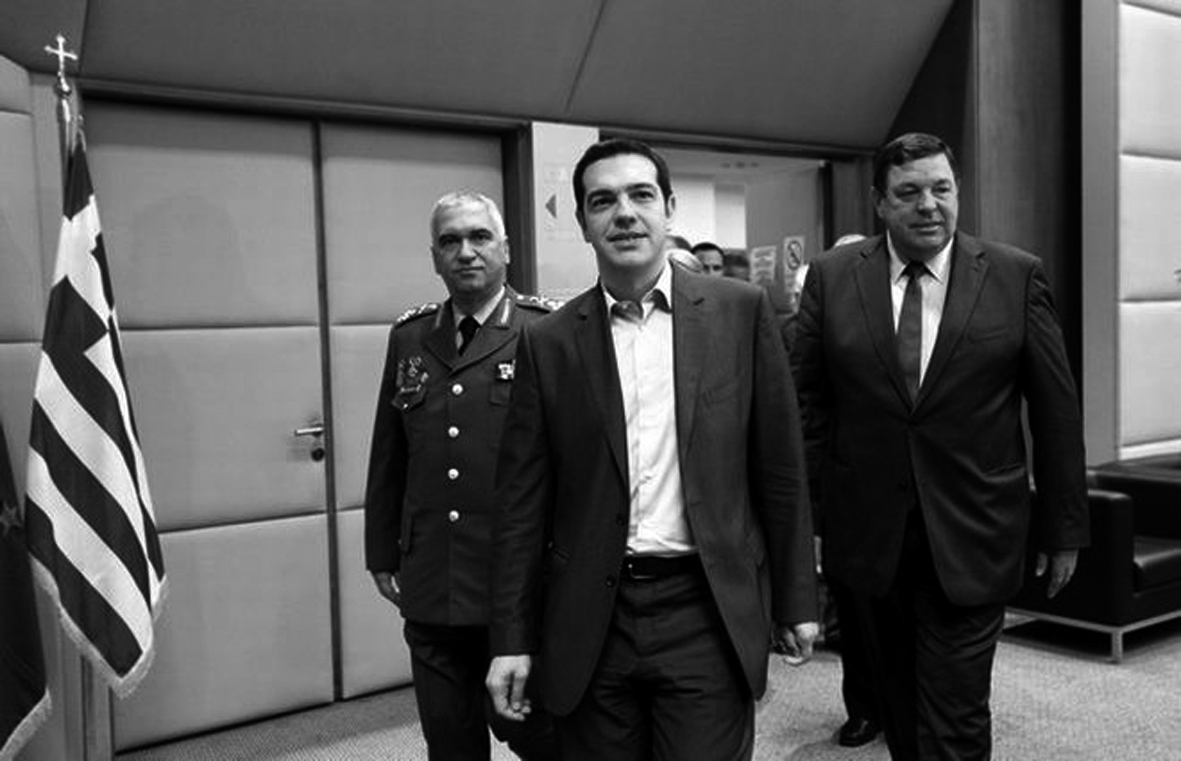
20.20.2014. Future PM in the Ministry of Defense
Barefoot Battalion, Presented as part of the Mediterranean/ Balkan Anarchist Meeting, Athens-Thessaloniki-Chania, 9-18/10/205
This paper was presented for the first time at the 5th Antimilitarist Gathering organised by the Barefoot Battalion on 4-5th September 2015, in Ioannina, Greece. It was then enhanced to include the period shortly after the elections of 20th September 2015.
***
The continuation of the State
It is a fact, that the issue of anti-militarism is not always a central issue on the agenda of the anti-authoritarian movement and its structures. This has been the case in Greece for many years, and is especially true today. The total number of social and class struggles has clearly decreased. Despite the valuable legacy of recent struggles, they have not managed to overcome internal and external limitations in order to halt the increasingly intensified undermining of our class. Capitalist restructuring continues to rampage our lives, worsening our position within the fields of social struggle and decreasing the possibilities of collective action and thought.
Arguably, it is precisely during such a critical period, when inter-capitalistic competition makes war an increasingly less remote reality, which can be simply ‘shoved under the carpet’, that anti-militarism should preoccupy us in a much more serious and targeted way. The sweeping statements traditionally adopted by the Left that imply an antimilitarist approach (ie. opposing NATO or US foreign policy), have succeeded in attributing a certain ‘anti-imperialist’, confrontational character to their own agents and have masked the true nature of militarism and the way it has weaved itself into our everyday lives, into our neighbourhoods, in the structures of ‘our own’ state. There is a general tendency to view fascism, nationalism and racism as exaggerated deviations (from the otherwise ‘democratic’ European norm) and as socio-historic elements of only specific eras or states, as in the case of Germany during WWII. Similarly, militarism seems to be perceived as a phenomenon that is only apparent in remote dictatorial regimes (where leaders wear military uniforms and tanks roam the streets) or in the ‘exceptional’ chapters of contemporary greek history (such as the military junta between 1967-1964). In any case, an analysis of militarism which focuses neither on N.Korea nor on the military junta of 1967, but instead, focuses its’ attention on Greece in 2015 under the rule of SY.RIZ.A, is not the ‘hottest’ of subjects. Even though Rosa Luxemburg taught us almost 100 years ago that “militarism in both its’ forms – as war and as armed peace – is a legitimate child, a logical result of capitalism”. However, we hope that through efforts such as this one, the genetic relationship between militarism and the state will become clear.
